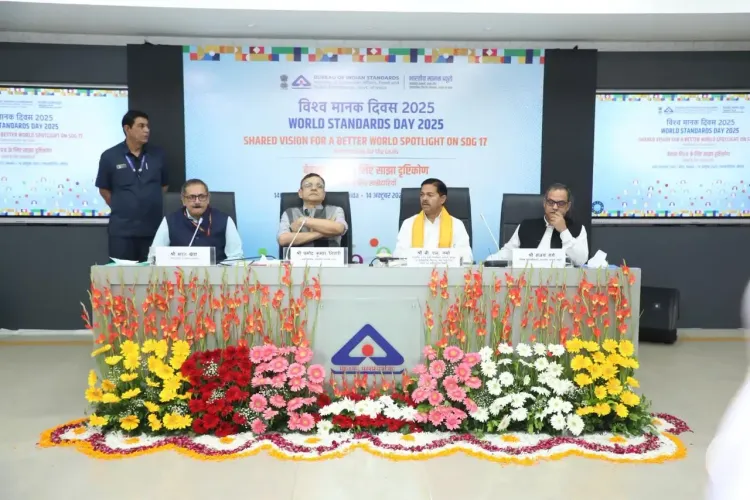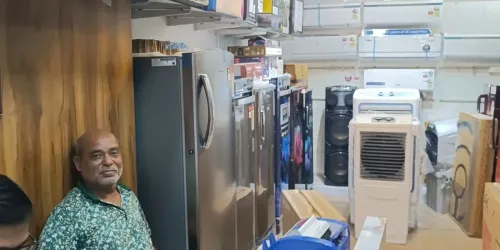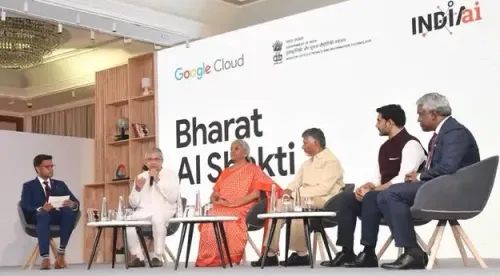How is the Centre Harmonising the QCO Framework to Support MSMEs and Curb Substandard Goods?

Synopsis
Key Takeaways
- Alignment of QCOs with international standards enhances product quality.
- Over 22,300 standards are currently enforced in India.
- The number of mandatory certified products has significantly increased.
- World Standards Day highlights the importance of quality in trade.
- India aims to become the third-largest economy by 2028.
New Delhi, Oct 14 (NationPress) Union Minister Pralhad Joshi stated on Tuesday that the government is aligning the scope of Quality Control Orders (QCOs) for compulsory certification to combat the proliferation of substandard goods, while also addressing the needs of the domestic MSME sector.
Currently, there are over 22,300 standards in effect, with 94 percent of Indian standards harmonized with those of the ISO (International Organization for Standardization) and IEC (International Electrotechnical Commission).
During the celebration of World Standards Day 2025 hosted by the Bureau of Indian Standards (BIS), the minister stressed the importance of achieving a sustainable balance between these two objectives.
Joshi pointed out that in the last 11 years, India’s economic position has ascended from 10th to 4th, a significant milestone fueled by the government’s philosophy of Reform, Perform, and Transform.
He expressed confidence that India is on track to become the third-largest economy globally by 2028. The BIS has been instrumental in this vision by aligning national standards with global benchmarks.
According to Joshi, standards are fundamental to a well-functioning society, providing safety, quality, and trust across products, services, and systems.
They enhance seamless domestic and international trade, promote environmental sustainability, and safeguard consumer interests. By adhering to standards, India fortifies the reliability of its products and its standing in global markets.
Joshi commended BIS for organizing the World Standards Day 2025 celebration and mentioned that under Prime Minister Narendra Modi's leadership, India is progressing with renewed dedication to ensure that every citizen has access to safe, reliable, and high-quality products and services.
The minister reiterated the Prime Minister's clear directive for zero defect and zero effect, advocating for products that are impeccable in quality and environmentally friendly.
He emphasized that Bharat should gain international recognition for its quality and that Indian standards should be synonymous with global standards.
The count of new standards formulated has surged from 407 in 2014 to 1,038 in 2025. The number of products requiring mandatory certification has increased from 106 products under 14 QCOs in 2014 to 773 products under 191 QCOs plus two horizontal QCOs in 2025.
Minister of State for Consumer Affairs and Social Justice and Empowerment BL Verma praised the contributions of experts spearheading India’s standardization movement.
Highlighting the significance of global standardization in fostering growth and collaboration, Verma recognized the “Standardization Heroes of India” for ensuring balanced development of standards and certifications.








